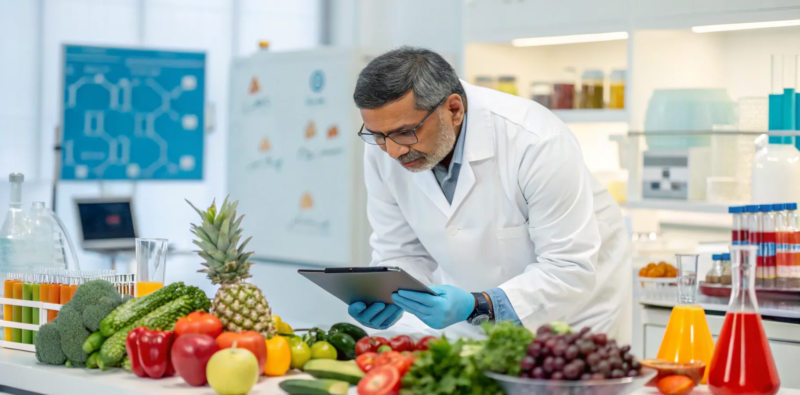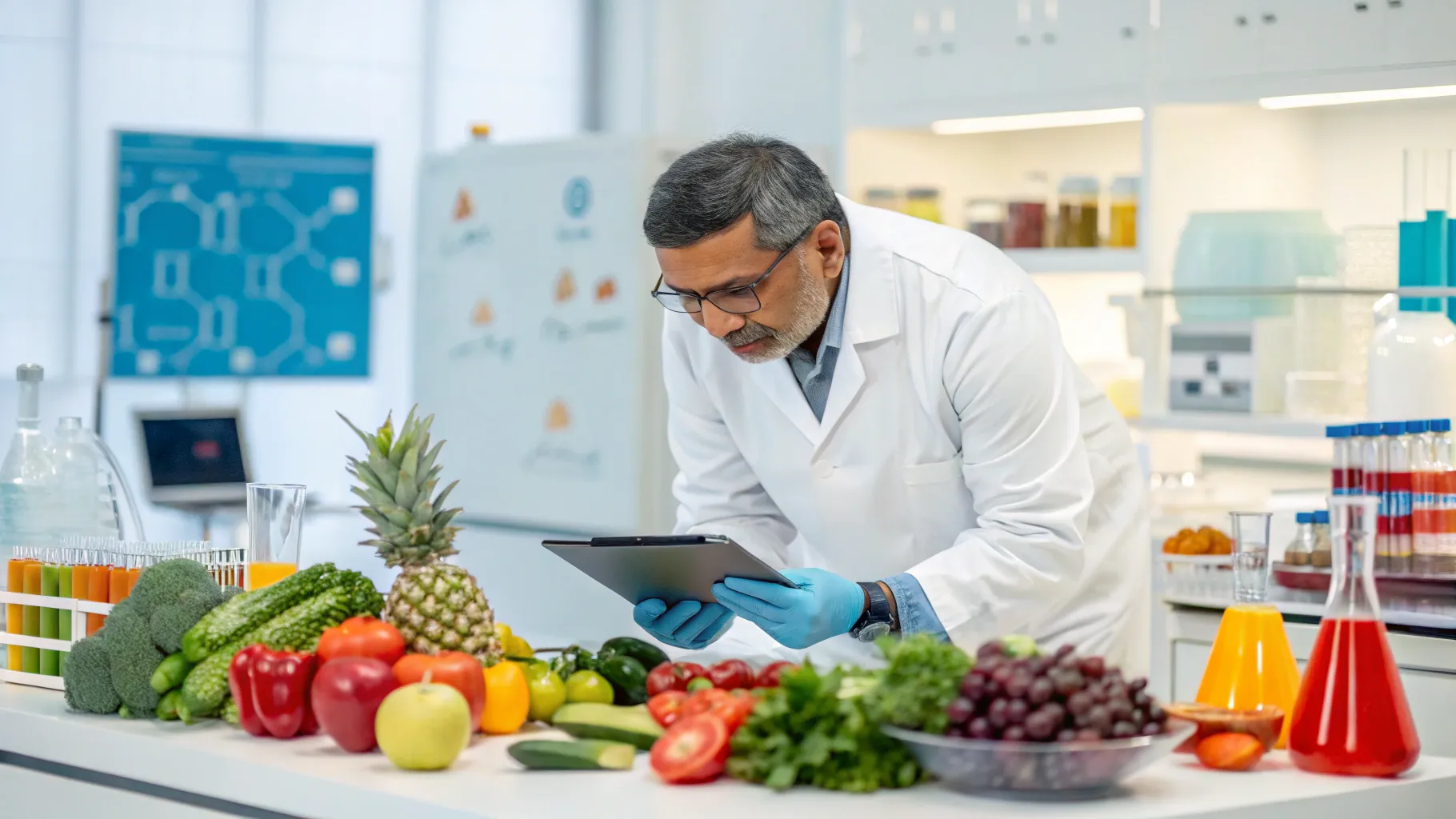
Building a Successful Career in the Food Industry: Insights from an Expert

In today’s fast-paced world, choosing the right career path is crucial, especially in the thriving food industry. Prakash , with over 15 years of experience, shares valuable insights and practical advice on how to navigate this exciting field. Whether you are a fresh graduate or contemplating your next steps, this guide will help illuminate your journey in food science and technology.
Table of Contents
- 🌟 Exploring Career Paths in Food Science and Technology
- 📚 Learning: The Key to Career Success
- 🚀 Career Options in Food Science and Technology
- 📜 Certification Courses: Boost Your Skills
- 🏢 Indian Companies in the Food Sector
- 🌈 Other Career Aspirations in Food Science
- ❓ FAQ: Common Queries About Careers in Food Science
🌟 Exploring Career Paths in Food Science and Technology
Choosing a career in food science and technology can be an exciting journey. This field is not just about cooking or food processing; it involves understanding how food is produced, preserved, and packaged. As a student, you might wonder, “Why should I consider this career?” Let’s dive into the reasons why food science and technology could be the right path for you.
Why Food Science Technology?
Food science and technology is a fascinating field that combines various disciplines, including chemistry, biology, and engineering. Here are some compelling reasons to consider this career:
- Growing Industry: The food industry is rapidly expanding, especially in India. With increasing population and changing dietary habits, there is a high demand for food scientists.
- Innovation: This field allows you to be at the forefront of food innovation. You can work on developing new food products, improving food safety, and enhancing nutritional value.
- Impact on Society: By working in food science, you contribute to public health. Your work can help ensure that food is safe, nutritious, and accessible to all.
- Variety of Career Options: From research and development to quality assurance and marketing, food science offers diverse career paths.
My Experience
Reflecting on my journey, I can say that my decision to pursue food science was life-changing. Initially, I considered a career in IT, but my passion for food and agriculture led me to explore food science. I enrolled in a specialized program at a renowned agricultural university. The curriculum was multidisciplinary, covering everything from food processing to quality control.
During my studies, I discovered the excitement of working with different food products and technologies. I learned about the science behind food preservation and the importance of quality in food production. This experience solidified my choice and motivated me to delve deeper into the field.
Ideal Situation
Imagine a career where you can blend your passion for food with science. In an ideal situation, you would work in a vibrant environment, collaborating with experts to develop innovative food products. You would have access to state-of-the-art technology and resources to experiment and learn.
Moreover, you would have opportunities for continuous growth and learning, whether through workshops, conferences, or hands-on projects. This dynamic environment fosters creativity and allows for personal and professional development.
Career Opportunities
As a food science graduate, your career options are vast. Here are some popular roles in the industry:
- Food Technologist: Focus on improving food products and processes.
- Quality Assurance Manager: Ensure food safety and compliance with regulations.
- Research Scientist: Conduct research to develop new food products and technologies.
- Product Development Manager: Oversee the creation of new food products from concept to launch.
- Food Safety Auditor: Evaluate food production processes to ensure safety and quality standards.
These roles offer competitive salaries and the chance to make a difference in people’s lives through food innovation.
Career Progress
The career trajectory in food science can be exciting and rewarding. It typically starts with entry-level positions, such as food technologist or quality control analyst. As you gain experience, you can move into more specialized roles or management positions.
Many professionals choose to pursue further education, such as a master’s degree or certifications, to enhance their skills and knowledge. This can lead to advanced roles, such as senior research scientist or director of quality assurance.
Networking and continuous learning are crucial in this field. Engaging with industry professionals through conferences and workshops can open doors to new opportunities and collaborations.
How Do We Learn?
Learning in food science is a blend of formal education and hands-on experience. Here are some effective ways to gain knowledge and skills:
- Formal Education: Pursuing a degree in food science or related fields provides a strong foundation.
- Internships: Gaining practical experience through internships allows you to apply classroom knowledge in real-world settings.
- Workshops and Seminars: Participating in workshops helps you stay updated with the latest trends and technologies in the industry.
- Networking: Connecting with professionals in the field can provide insights and guidance on career paths and opportunities.
By combining these learning methods, you can build a successful and fulfilling career in food science and technology.
📚 Learning: The Key to Career Success
Learning is more than just acquiring knowledge; it’s about nurturing a passion for growth. Every student has a unique capacity to learn, shaped by their interests and curiosity. For some, learning comes naturally, while for others, it requires dedication and effort. However, the willingness to learn is a choice everyone can make.
As Dr. APJ Abdul Kalam once said, “Learning gives creativity, creativity leads to thinking, thinking provides knowledge, and knowledge makes you great.” Embracing this mindset can significantly impact your journey in food science and technology.
Ways to Enhance Your Learning
Here are some effective strategies to enhance your learning experience:
- Stay Curious: Always ask questions and seek to understand the ‘why’ behind concepts. Curiosity drives deeper learning.
- Practice Regularly: Apply what you learn through practical experiences. Engage in projects or experiments related to food science.
- Collaborate with Peers: Discussing ideas and challenges with classmates can provide new perspectives and deepen your understanding.
- Seek Feedback: Constructive criticism helps identify areas for improvement and encourages growth.
🚀 Career Options in Food Science and Technology
The food industry offers a wide range of career opportunities. Understanding your interests and strengths can help you choose the right path. Here’s a closer look at some promising career options:
Popular Career Paths
- Food Scientist: Focus on researching and developing new food products while ensuring safety and quality.
- Nutritional Consultant: Advise individuals or organizations on healthy eating practices and nutrition.
- Quality Control Analyst: Monitor and test food products to ensure they meet safety standards and regulations.
- Food Safety Inspector: Inspect food production facilities to ensure compliance with health regulations.
- Food Marketing Specialist: Develop marketing strategies for food products, focusing on consumer trends and preferences.
📜 Certification Courses: Boost Your Skills
Certification courses can significantly enhance your employability in the food industry. They demonstrate your commitment to professional development and can provide specialized knowledge. Here are some popular certification courses:
Recommended Certification Courses
- FSSAI Certification: Essential for understanding food safety regulations in India.
- ISO 22000: A certification for food safety management systems, valuable for quality assurance roles.
- HACCP Training: Focuses on hazard analysis and critical control points, crucial for food safety.
- Food Technology Workshops: Short courses that cover the latest trends and technologies in food science.
🏢 Indian Companies in the Food Sector
India has a vibrant food industry with numerous companies offering career opportunities. Here are some prominent players in the market:
Leading Indian Food Companies
- ITC Limited: Known for its diverse food products, including snacks and packaged foods.
- Britannia Industries: A leader in the bakery and dairy segments, offering various career paths.
- Parle Agro: Famous for its beverages and snacks, with a strong focus on innovation.
- Hindustan Unilever: Offers a wide range of food products and values sustainability and health.
- Nestlé India: A multinational company with a strong presence in the Indian market, providing various roles.
🌈 Other Career Aspirations in Food Science
Besides traditional roles, many students aspire to explore entrepreneurial ventures in the food industry. Here are some alternative career paths:
Entrepreneurship in Food
- Food Startups: Launching your own food product line can be rewarding and innovative.
- Food Blogging/Vlogging: Sharing recipes, reviews, and food science insights through social media platforms.
- Consultancy: Providing expert advice to food businesses on product development and marketing strategies.
- Research and Development: Focusing on innovative food technologies and sustainable practices.
❓ FAQ: Common Queries About Careers in Food Science
What qualifications do I need to start a career in food science?
Typically, a bachelor’s degree in food science, technology, or a related field is required. Certifications can enhance your qualifications.
Is it necessary to pursue a master’s degree?
A master’s degree is not mandatory but can provide specialized knowledge and improve job prospects, especially for advanced roles.
How can I gain experience as a fresh graduate?
Internships, part-time jobs, and volunteer opportunities in food-related organizations can help you gain practical experience.
What skills are important for a career in food science?
Key skills include analytical thinking, attention to detail, problem-solving, communication, and teamwork.
Are there opportunities for studying abroad?
Yes, many universities offer programs in food science and technology. Studying abroad can provide exposure to global practices and innovations.
